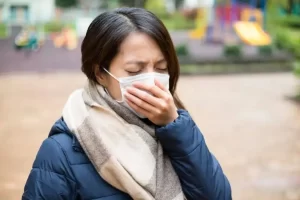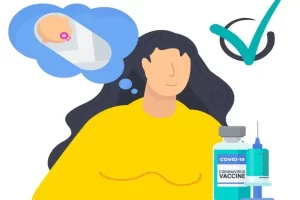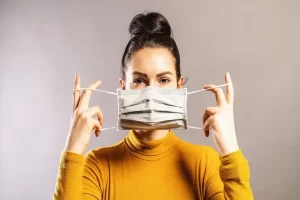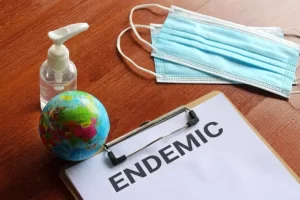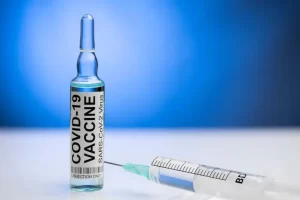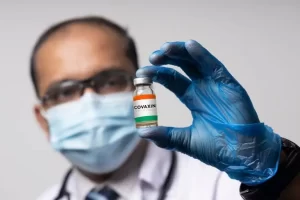
What Is The Need Of The Hour To Prevent COVID-19 Surge In India? Experts Share Their Thoughts
The possibility of another COVID wave in India cannot be overlooked, given the present conditions in some countries like Japan, the US, Korea, and China. Experts share their thoughts on how to prevent and tackle the COVID surge. In the wake of the sudden rise in coronavirus cases in many countries around the end of 2022, India began strengthening its COVID precaution measures. States and UTs were asked to ensure that necessary public health measures are put in place to minimize the spread of the virus, as well as to strengthen the focus on TestTrack-Treat-Vaccination and adherence to COVID-appropriate behavior. Additionally, states were told to monitor and report cases of influenza-like illness and severe acute respiratory illness on a regular basis for detecting the early rising trend of COVID-19 cases. Currently, the COVID situation in India seems to be pretty much under control, with less than 100 new cases reported in the last 24 hours. But the possibility of another wave cannot be overlooked, given the present conditions in some countries like Japan, the US, Korea, and China. So, what we can do now to prevent the COVID-19 surge? Let’s hear what the experts have to say on this: Vaccination is the best way to prevent the COVID-19 surge Dr. Nikhil Modi says, “The virus that causes COVID-19 is a type of coronavirus that has been there for many years. These viruses tend to change their genetic material from time to time, leading to the evolution of new strains. In the same way, the COVID-19 virus has the tendency to change its material and form new strains, which can cause newer infections even in persons who have had COVID or even if they are vaccinated. Hence, a sudden change in a strain can bring about a surge in infections at any time.” According to him, the golden rule to prevent or reduce a further surge in COVID-19 cases is to get all people vaccinated. He elaborates, “Even if the number of infections increases if all people are vaccinated, the chances of developing a serious disease will be less. Also, from the previous COVID waves, we have observed that wearing a mask provides protection against the virus to a great extent. So, we should not let our guard down and continue to follow good habits in the future too. A mask can go a long way in protecting us against COVID-19 and minimizing the spread of the disease. Additionally, we should keep our immunity stronger by following a good healthy diet. Those who have an underlying disease should take their medicines regularly. By taking these steps we can disrupt the chain of COVID spread and thus future surge.” People should stick to the COVID-19 protocols As many countries report a rise in COVID cases, Dr. Aniket Mule, Consultant Internal Medicine, Wockhardt Hospitals in Mira Road, also highlighted the importance of strict adherence to COVID-19 protocol, which includes masking, hand sanitizing, and social distancing. He advises that you should: “Do not allow any visitors at home, if you have small kids at home as they will be at a higher risk of contracting COVID-19,” he adds. Need a 360-degree healthcare service to tackle the COVID surge Prashant Kashyap, Co-Founder, and COO, of Connect and Heal, opines that digitization of healthcare can help better deal with any healthcare crisis in the future. He states, “The onset of the pandemic pushed businesses to go virtual almost overnight. With working from home becoming the norm, employees’ needs and expectations regarding healthcare benefits also changed. As a result, today, several organizations provide healthcare services above and beyond health insurance as a benefit. With the expanding scope of healthcare benefits, the need for a technology-based solution is more evident than ever. This is where tech-enabled platforms providing 360 healthcare will play a crucial role in the event of a new wave.” “Be it telemedicine, health screenings, emergency support, or preventive care, the ability to provide seamless access will determine how effective a solution is. And seamless delivery is possible only through the digitization of healthcare. While the pandemic catalyzed the adoption of digital healthcare, a lot more is possible with a greater degree of public-private partnerships. Digitization of healthcare would also help standardize care protocols across the entire healthcare ecosystem – a must for dealing with any healthcare crisis in the future,” he adds. Globally, 2.8 million new COVID cases recorded last week According to WHO, nearly 2.8 million new COVID-19 cases and more than 13, 000 deaths related to the disease were reported worldwide in the week of 9 to 15 January 2023. The highest numbers of new weekly cases were reported from Japan (1,025,321), the United States of America (415,864), the Republic of Korea (286 291), Australia (191,750), and China (190,451). The highest numbers of new weekly deaths were reported from the United States of America (3922 new deaths), Japan (2849), China (802), Australia (742), and France (520). In the last 24 hours, India recorded 89 new COVID-19 cases, according to the data released by the Ministry of Health and Family Welfare on Tuesday morning. The country’s active caseload currently stands at 1,931, while its daily and weekly positivity rates stand at 0.06 percent and 0.08 percent respectively. During the same period, 90 patients recovered from the viral disease, and the country’s current recovery rate is reported at 98.81 percent. In view of rising coronavirus cases in many countries, the Indian government recently revised its guidelines pertaining to the COVID-19 pandemic, including the protocols for international travelers. Starting this month, negative RT-PCR report was made mandatory for international passengers from China, Hong Kong, Japan, South Korea, Singapore and Thailand. Thermal screening is also done for all the passengers at the point of entry and those found to be symptomatic during screening are isolated and taken to a designated medical facility as per health protocol. So far, India has administered 220.30 crore total vaccine doses (95.16 crore second doses and 22.57 crore precaution doses) under Nationwide Vaccination Drive. At present, more than 2 lakh doses are administered














